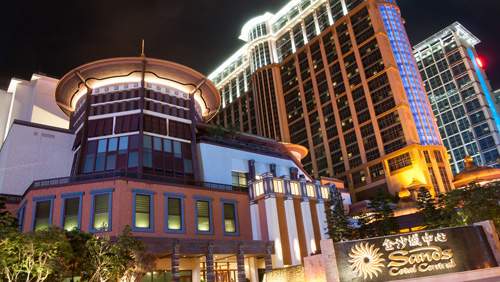Sands China, a subsidiary of Las Vegas Sands, has reportedly had to reach out for a helping hand. The company has reached an agreement with lenders that are going to extend the casino operator a $2-billion revolving line of credit. The money, according to Sand China, will be used for “general corporate purposes.” It makes one wonder how solvent the company is if it needs to seek such a large handout.
 The agreement was announced through a filing with the Hong Kong Stock Exchange and the U.S. Securities and Exchange Commission (SEC). It will be available until July 31, 2023 and Sands China will be able to pull funds in either HK or U.S. dollars.
The agreement was announced through a filing with the Hong Kong Stock Exchange and the U.S. Securities and Exchange Commission (SEC). It will be available until July 31, 2023 and Sands China will be able to pull funds in either HK or U.S. dollars.
If the company draws funds in U.S. dollars, it will pay an interest rate equal to the London Interbank Offered Rate (LIBOR). The LIBOR is one of the most common benchmarks for establishing interest rates. If funds are drawn in HK dollars, the exchange rate will be based on the Hong Kong interbank offered rate. The initial margin has been set at an annual rate of 2%.
In addition to those funds, Sands China will also be given access to a swing-line loan sub-facility. This will be priced using separate benchmarks and is expected to carry an annual interest rate of 1%.
The filing specifies, “The Facility Agreement contains affirmative and negative covenants customary for similar unsecured financings, including, but not limited to, limitations on indebtedness secured by liens on principal properties and sale and leaseback transactions. The Facility Agreement also requires the Borrower to maintain a maximum leverage ratio and a minimum interest coverage ratio.
“The Facility Agreement also contains certain events of default (some of which are subject to grace and remedy periods and materiality qualifiers), including, but not limited to, events relating to the Borrower’s gaming operations and the loss or termination of certain land concession contracts.”
In a recent analyst note by the Nomura brokerage firm, the company said that shares in Las Vegas Sands, due in part to its operations in Asia, could produce returns of just 13% if Macau’s gross gaming revenue slips by 3% as predicted. This pales in comparison to others, such as MGM resorts (35%) and Melco Resorts (27%). It’s even worse than Wynn Resorts, which is expected to produce returns of about 17%.